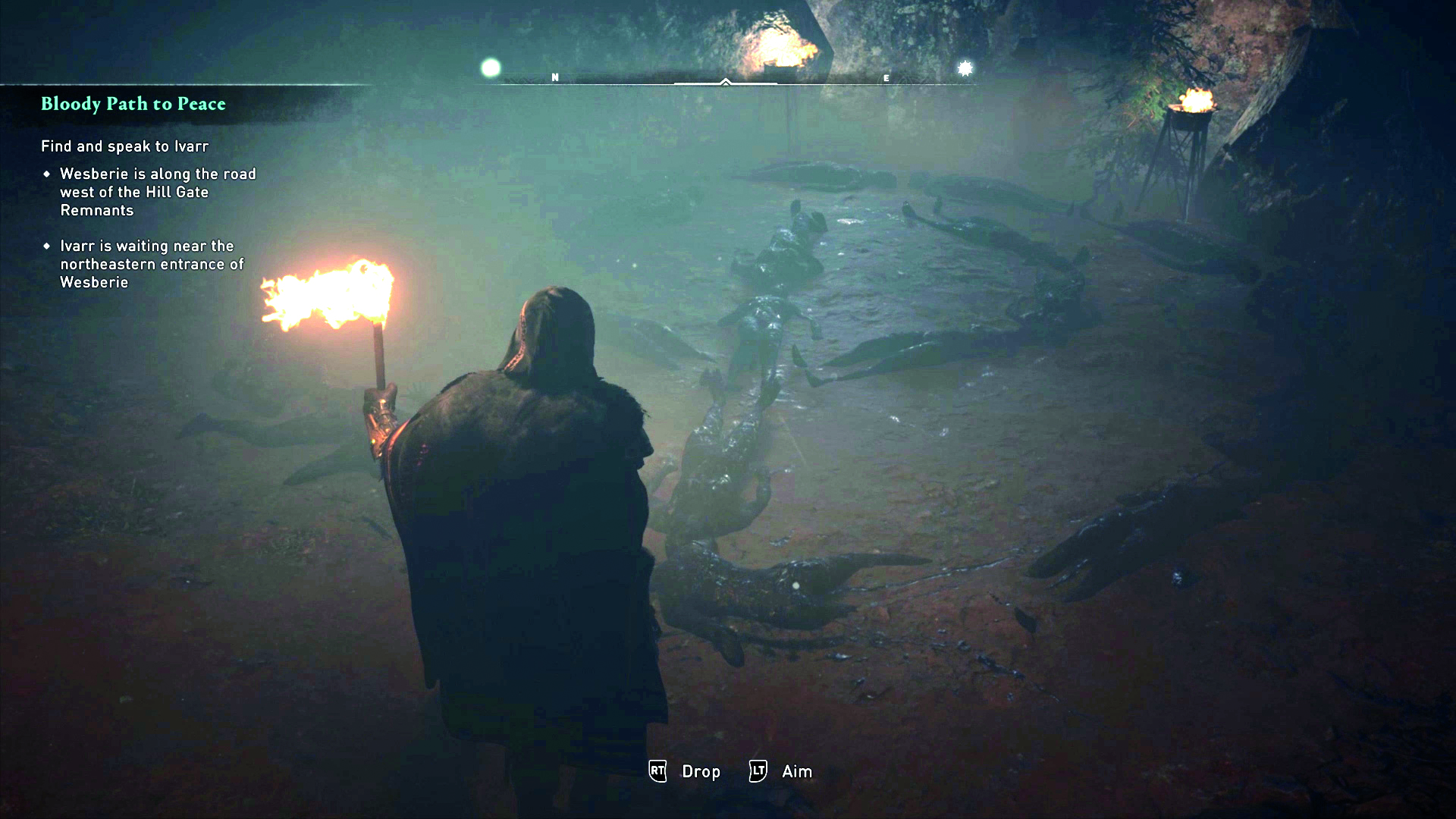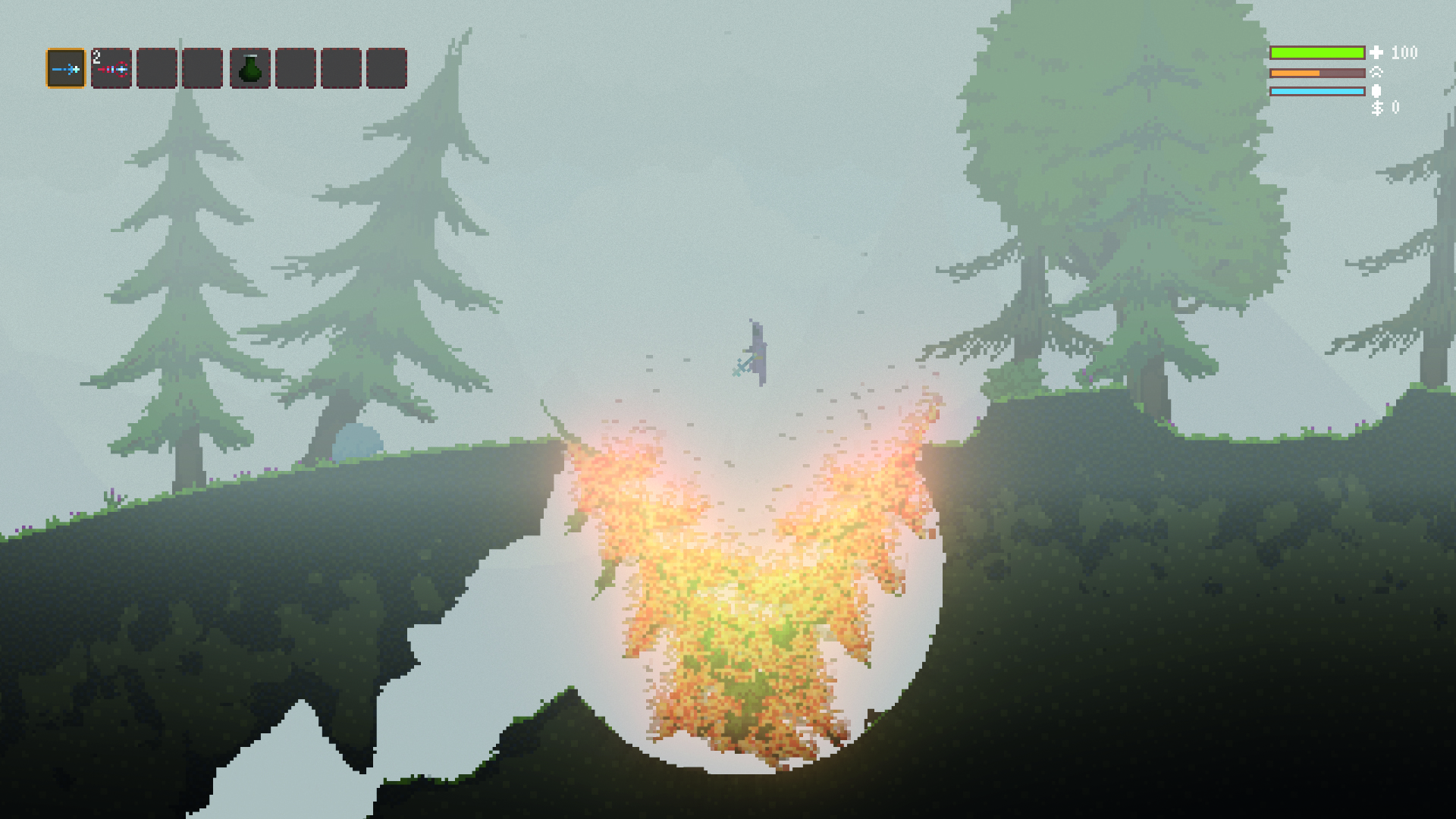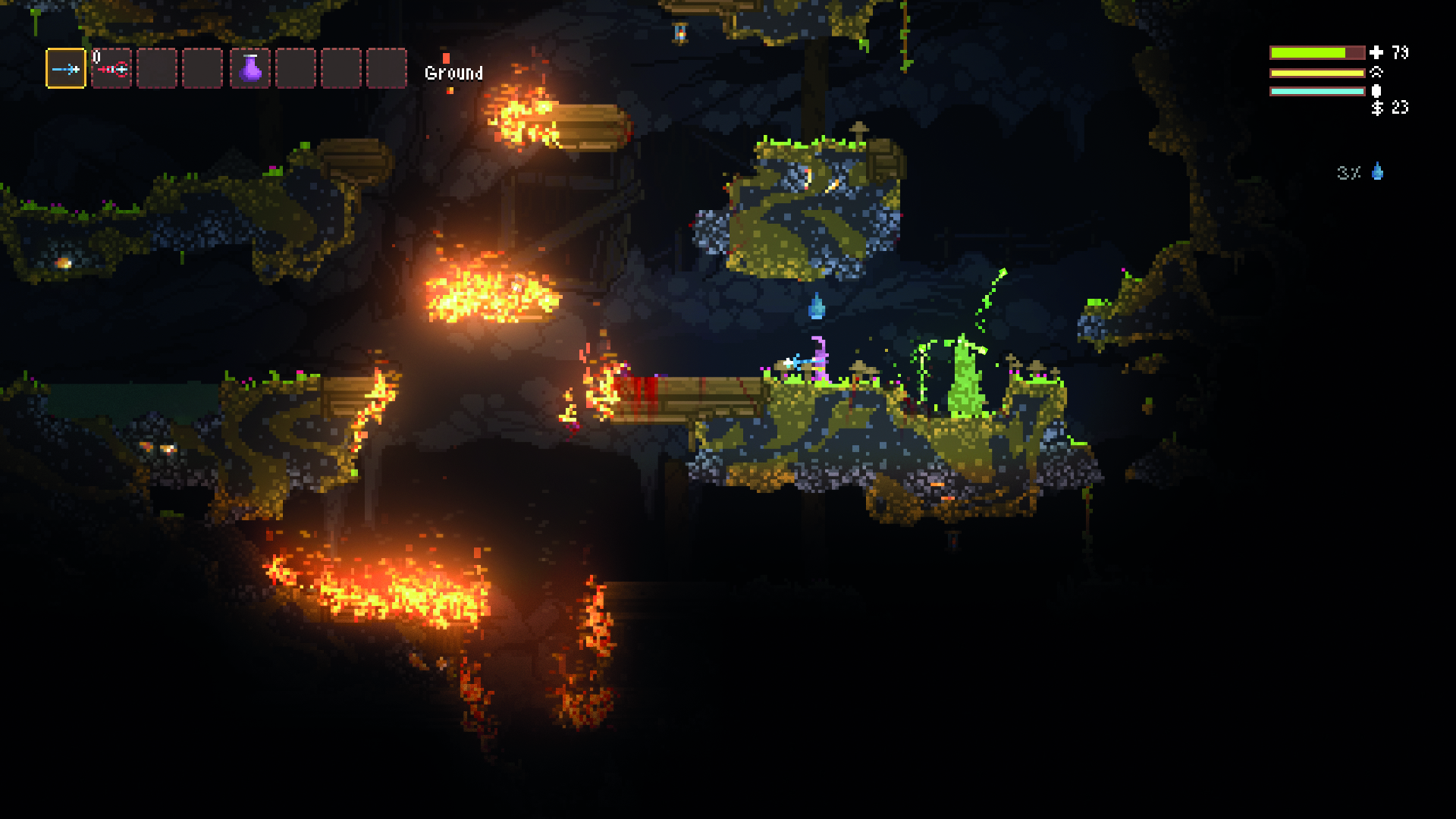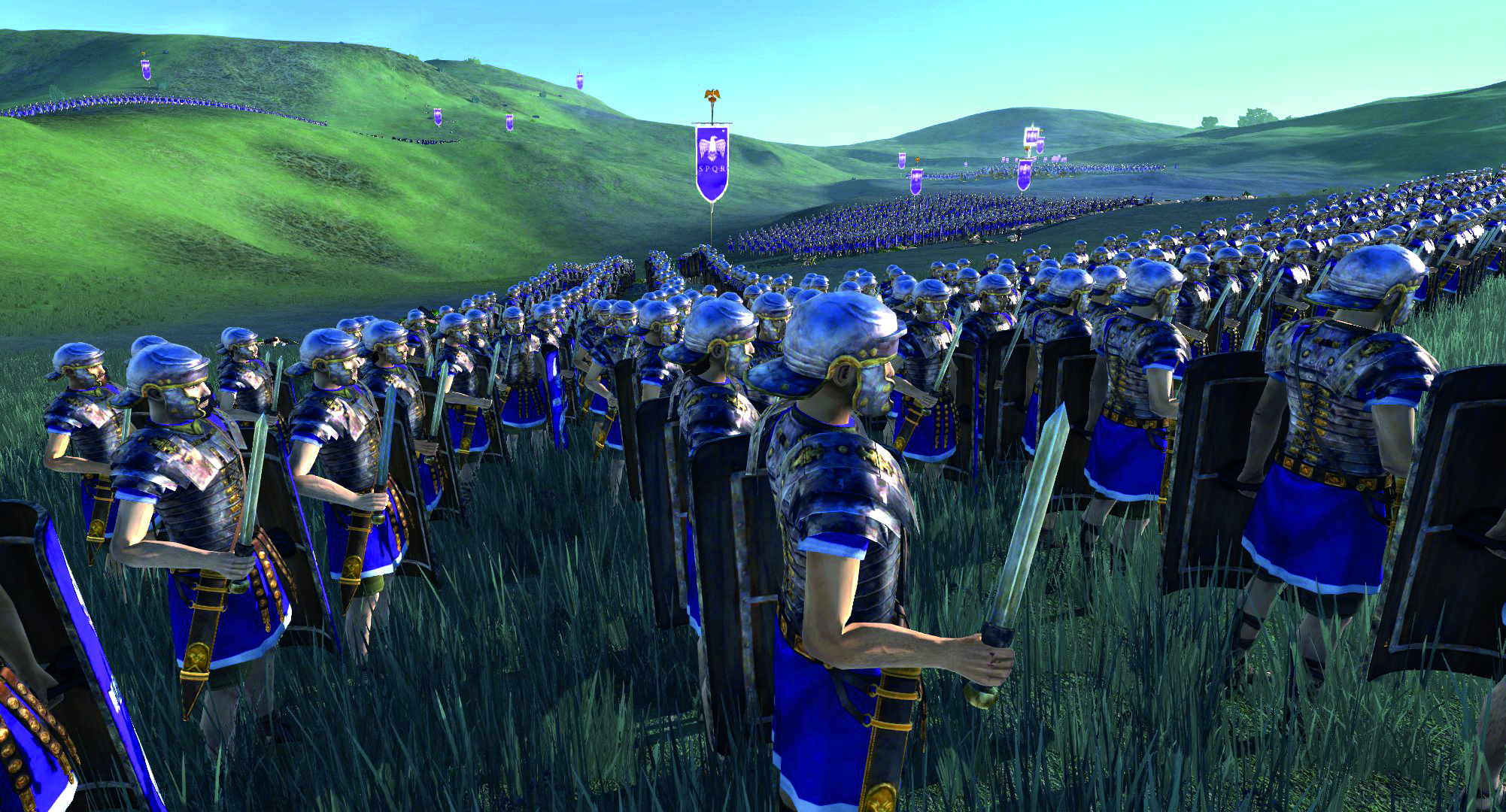PC Gamer plays: Emily is Away, Assassin's Creed Valhalla, Noita, Total War: Rome Remastered
Dispatches from the virtual front.

Time to sit in the assembly hall with your legs crossed and your arms folded, as Mr PC Gamer boots up the school computer for virtual storytime. This time around, Rachel gets nostalgic for the days when Facebook wasn't glorified data-mining malware, Robin muses upon on the strangeness of Assassin's Creed Valhalla, Tom revels in self-immolation in Noita, and Matt reflects upon familial bonds forged by Total War: Rome Remastered.
Pining for the early days of social media in Emily is Away <3 - Rachel Watts
Cast your mind back to a time when Facebook was in its infancy. An inconspicuous social media site where unsolicited posts from racist uncles, data mining advertising, and deceitful catfish personas were non-existent. It was a more innocent time where we were all still figuring out how to communicate digitally.
It’s a piece of internet culture that’s particularly hard to articulate, but the visual novel Emily is Away <3 manages to capture the habits and language of a bygone era. The first two games in the trilogy took place in AIM chat windows, and this third in the trio takes place in 2008 over Facebook. Oops, I mean ‘Facenook’.
Playing as a high schooler in their senior year, you and your friends are trying to figure out life’s next steps while grappling with this new era of social media. You can click on people’s profiles, get tagged in photos, start a poke war, and post Paramore song lyrics on friend’s walls. As much as these pseudo social media interactions make for surprisingly vivid throwbacks, it’s Emily Is Away <3’s chats where I found the most nostalgia, specifically, the linguistic authenticity that developer Kyle Seeley has managed to tune in to.
The story branches out entirely through these simulated conversations as you try and navigate your way through the messy interconnected relationships of your teenage friendship group.

The way that these characters speak to each other is a trip down memory lane. For those who grew up online, Emily is Away <3 is like a time capsule. The dialogue, cultural references, and memes are all so firmly situated in the time period not even the Rosetta Stone could decipher it. Imagine trying to explain ‘I Can Has Cheezburger?’ to someone now. It’s utterly absurd.
Even the way the teens type is nostalgic. Awkward, stylistic spelling, weird word flourishes, and a complete disregard for capital letters run rampant in these text chats. I am guilty of using most, if not all, of these back in 2008 and some still slip into my online vocab when chatting to friends over a decade later.
Keep up to date with the most important stories and the best deals, as picked by the PC Gamer team.
It’s not just feel-good nostalgia in Emily is Away <3, it also recalls the anxieties that come with chatting through a small text window without seeing the other person’s face – anxieties that are still prevalent today. With many of us having to adapt to working from home the past year it feels somewhat like a return to those early days of talking online. Even the dreaded ‘Emily is typing’ message at the bottom of the chat window is the equivalent to seeing those three little bouncing dots on a majority of today’s virtual chats. It just shows how trying to connect to people online now is still just as hard now as it was back then.
I may not relate to the teen drama in Emily is Away <3’s story, but I see myself in the ways that these teens communicate, the anxieties of text chats, and trying to work out how to connect with each other in the internet age.
Discovering the weirder side of Assassin's Creed Valhalla - Robin Valentine

Have you noticed how weird Assassin’s Creed has gotten? I feel like I’m the only one who has. The strangeness has been creeping in since the move to the ancient world with Origins, but in Valhalla it feels like it’s found its surreal voice.
I’m not talking weird in the way they used to be, with overblown sci-fi plots where you’d end up fistfighting the Pope over alien technology, or discover the office IT guy was a reincarnated pirate. The series has frequently been ridiculous, but only in the way videogames tend to be. It wasn’t properly weird.
Eivor, the hero of Assassin’s Creed Valhalla, is a blunt and serious Viking, accustomed to raiding, pillaging, and stabbing blokes with swords. But she’s also a strangely mystical figure, who always seems to have one foot in some supernatural realm.
A staple of the series is post-death chats – after you stab an important target, they get to say their piece before they gasp their last. In Valhalla, these scenes play out like surreal Nordic theatre, your targets speaking in verse as they flee through a field of ghosts or get devoured by a tree. Odin offers wry commentary as Eivor strides towards them and destroys their soul with a touch.
Elsewhere you’re constantly going on similarly surreal vision quests and drug trips, battling underexplained supernatural forces and stumbling into confusing, fairytale-like events. But the funny thing is, I think it ends up making the game feel more historically authentic.
Not more accurate, of course. I’m not going to claim the Vikings genuinely could talk to their gods if they ate enough special mushrooms. But it’s the sort of thing you could imagine they believed, along with countless other little things that we know to be impossible, but they thought might be fact. This atmosphere of mythic surrealism and blurry lines between the real and unreal does make me feel like I’m seeing the world through a Viking’s eyes, rather than a modern historian’s. And, at least for me, that’s much more interesting than pure historical fact – or, indeed, whatever alien conspiracy is supposed to be happening this time round.
Reveling in self-destruction in Noita - Tom Sykes

There’s something oddly comforting about an underworld, exploring caves and tombs that people are not supposed to be in, seeing things we’re not meant to see – like a big floating eye-bat that spits streams of corrosive acid.
I’ve been playing Noita, which is a roguelike about ruining things. The anonymous wizard you control is descending deeper into a mysterious cave, while trying to avoid – or gleefully trigger – the many environmental hazards sitting temptingly in their way. These include, but are not limited to, big pits of lava, puddles of acid, explosive barrels, and mounds of gunpowder. I should be giving them the widest berth, as I would do in real life, but in Noita I am my opposite: I’m not afraid to make decisions, even in the knowledge that the outcomes will be terrible. Every time you die in Noita, it informs you of your cause of death, whether you caught fire, drowned, or shot yourself with your own projectile. But, really, it should just put ‘you couldn’t resist’.
You couldn’t resist shooting that barrel, just to watch the acid eat through the floor. You couldn’t resist pinging that lamp, to see fi re consume the wooden decking. Never mind that it’s in your way, and now the fi re is spreading – hey, it’s burning away the acid. That’s neat, you think, as the fi re consumes you.

I haven’t made it very far into Noita. I’m sure I’ll never spelunk to the farthest reaches of its perilous cavern. That’s OK, because I’m in this for the interaction, and the atmosphere of “If there’s a ridiculous-sounding upgrade, you can be sure I’ll take it.” this subterranean world. There’s something about a closed ecosystem, a simulated underground, that appeals to me. It’s a sandbox, but not too sandboxy, with reassuring borders to contain the chaos – and send your bouncing magic projectiles right back at you. Other games have captured this feeling, including Ultima Underworld and its spiritual successor, Arx Fatalis.
These games have a rebellious descendent in Noita, which is not so much about living in the underworld as being a clod-footed interloper, causing chaos with your every footstep, with every run-ruining act of ‘oh, what the hell’.
If there’s a ridiculous-sounding upgrade, you can be sure I’ll take it. Like the time my wand’s projectiles were replaced with a stream of boulders. Or the upgrade that caused my wand to emit a stream of plasma. The real world, the outside world, can sometimes seem too vast for us to really grasp how we’re affecting it, but in the enclosed world of Noita, our actions are reassuringly predictable: they’ll cause things to explode, melt, or disintegrate into a thousand tiny pixels.
Family matters in Total War: Rome Remastered

The original Total War: Rome was a huge part of my life in the mid-2000s. Not only did it get me through a lengthy stay in hospital, but it was also the game of choice of my neurodivergent daughter as she grew up. She played it, modded it, broke it, and bent it to her will. Her armies were suddenly vast and improbable, her coffers splitting with Denarii and her enemies cowering at the mention of her name. I always thought it was cheating, but she said she was channelling Julius Caesar. Living in a world where social norms and the ignorance of others made her life needlessly difficult, Rome, as well as its modding community, gave her control, power, and a place.
It was also our thing. Amongst all the challenges that life threw at us both, we’d always had hoplites and phalanxes to discuss. When Windows 10 came and took Rome away for good, it felt a bit like a death in the family. I moved on to Rome II but that left her cold. ‘Gaining a tactical advantage’ was now an overly complex endeavour. There was no way to summon the casual and arbitrary chaos of the gods, and that, she told me, was half the fun.
That little girl is now a grown woman with other fish to fry, but the game getting remastered called us both, babbling about the Marian Reforms and wardrobe malfunctions. Of course, nostalgia is the vice of the aged, so what could it offer her, especially if she couldn’t take it apart?
Rachel had been bouncing around different gaming websites as a freelancer and staff writer for three years before settling at PC Gamer back in 2019. She mainly writes reviews, previews, and features, but on rare occasions will switch it up with news and guides. When she's not taking hundreds of screenshots of the latest indie darling, you can find her nurturing her parsnip empire in Stardew Valley and planning an axolotl uprising in Minecraft. She loves 'stop and smell the roses' games—her proudest gaming moment being the one time she kept her virtual potted plants alive for over a year.


